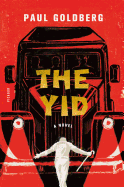"The central problem is still with us," said Douglas Preston, author and founder of the Authors United movement, during a featured talk at Winter Institute 11 on Sunday about Amazon.com and the antitrust efforts of the Authors Guild, Authors United and the American Booksellers Association. Richard Russo, author and vice-president of the Authors Guild, joined Preston in conversation, and Oren Teicher, CEO of the ABA, moderated the discussion.
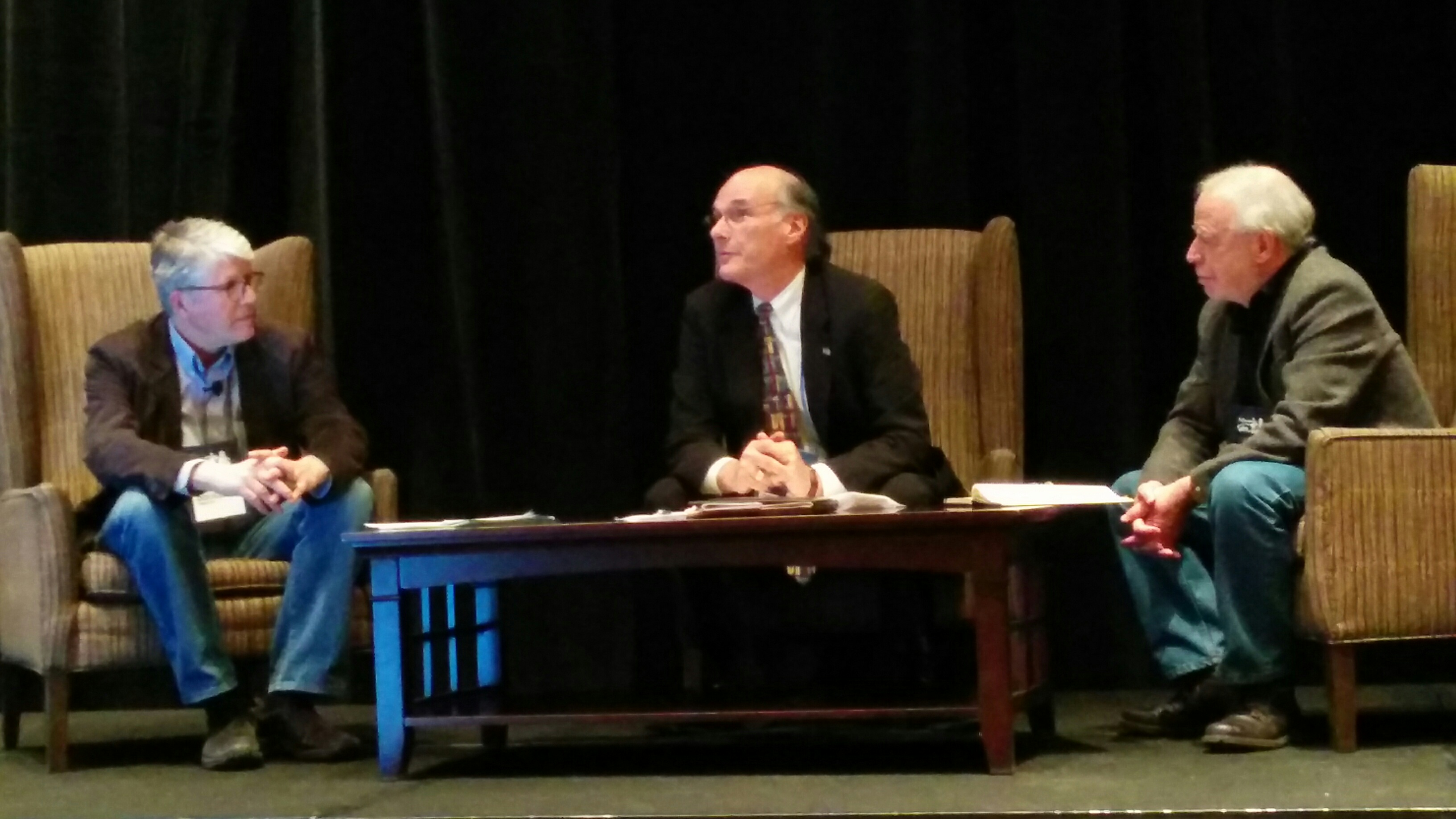 |
| Douglas Preston, Oren Teicher and Richard Russo |
"The central problem is Amazon's enormous dominance of the entire book publishing industry," continued Preston. "Amazon overall has a market share in the entire publishing world that is about equal to Standard Oil's share of the petroleum distribution business in 1911 when it was broken up into 34 companies--about 70%."
In a meeting with members of the Department of Justice last September, Preston said, members of Authors United, the Authors Guild and others presented the Department with arguments for an antitrust investigation into Amazon's practices. Unlike an earlier meeting with lawyers from the DoJ, Preston recalled, this one went well. In his estimation, the most compelling argument against Amazon is not actually an antitrust argument but in fact a First Amendment argument. Americans, he said, have been extremely concerned about the concentration of power in "any vital informational market" since the founding of the country. Now, Preston contended, Amazon has greater control of the book market than any corporation in any informational market in the history of the United States, and the company's practices have "already distorted the free flow of information" in this country.
Amazon has also exerted such powerful downward pressure on the industry and extracted so much money from it, Preston continued, that publishers are now much more conservative and risk-averse in their publishing decisions. Debut authors and midlist authors, he said, have been "absolutely devastated" by this, and it was those authors for whom Preston had the greatest concern. The case could strongly be made, Preston argued, that there are books not being published because of Amazon's effect on the market.
"That is the most devastating thing of all, I think," said Preston. "The authors who will not become authors."
Russo recalled not taking an active stance against Amazon until he wrote a New York Times piece in 2011 decrying Amazon's predatory business practices and in particular its showrooming app. He received an invitation to join the Authors Guild following his editorial, which led Russo to think more deeply about "authorship in general" and in particular the status of the "writing life" for new and midlist writers.
"You don't have to worry about Doug and me. That's not the point," said Russo. The point, he continued, is protecting what is left of the writing life for emerging writers. Author incomes in many countries around the world, including the U.S., the U.K. and Canada, are down substantially, and though Amazon is not the sole reason for that, they are "squarely in the middle of what's happening."
Russo denied the notion that the Authors Guild is opposed to Amazon no matter what. "We've run afoul of Amazon from time to time not because we hate Amazon, but because we believe the best way for us to flourish is for all of us to flourish," he said. There is a place in the publishing ecosystem, he asserted, for large publishers and small publishers, big stores and small independent stores, and it was better for everyone involved, even Amazon, to have a more diverse ecosystem. "We don't want someone coming along and taking more than their share."
It was also "terribly scary," Russo added, when the nation's largest bookseller "does not care about authors and does not care about books."
On a personal level, Russo said he was keenly aware of how important independent booksellers were in building his career. In a world dominated entirely by Amazon, which does a very poor job of identifying and promoting new and emerging writers, Richard Russo the author would not exist. And it was baffling to him, he said, how ruthlessly Amazon competes with independent bookstores. Wondered Russo: "How does it work to their advantage to put the very people out of business who know who the great new writers are coming up in the pipeline?"
When asked if there were any reasons to be optimistic that the Department of Justice would actually pursue Amazon, Preston said that there are. Among the reasons: the gradual shifting of public opinion about Amazon in the U.S. People are starting to realize, he said, that it's important to support local businesses. Said Preston: "I think the trend is against Amazon in several ways."
Russo agreed that the population at large is beginning to have a better understanding of the value of independent bookstores. "Independent booksellers have survived, I suspect, because it's finally come home to people what added value is all about," he said. "People in general are beginning to understand that the embrace of the screen is a very chilly one." --Alex Mutter
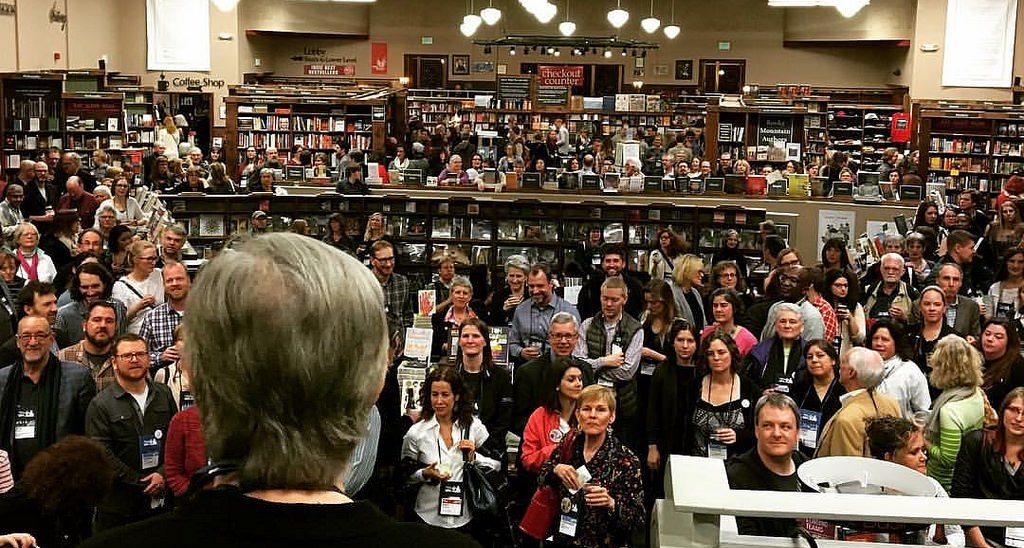














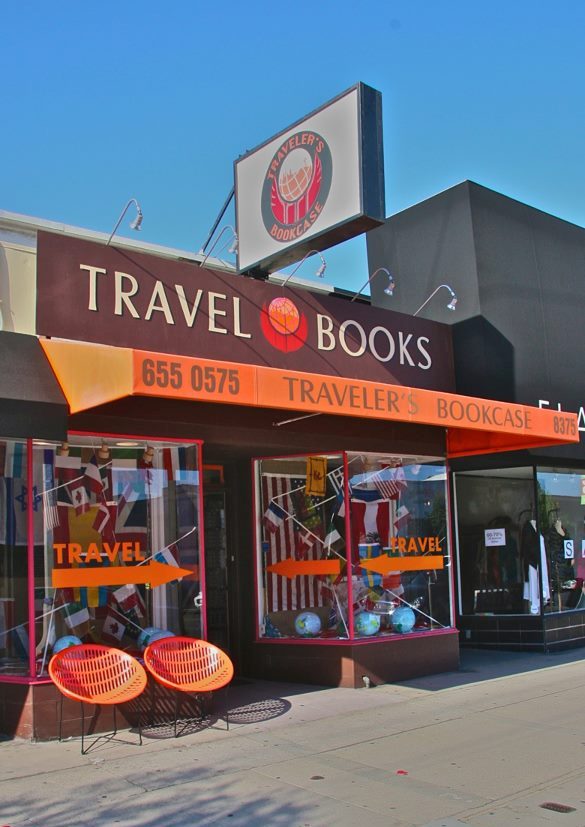 Traveler's Bookcase
Traveler's Bookcase
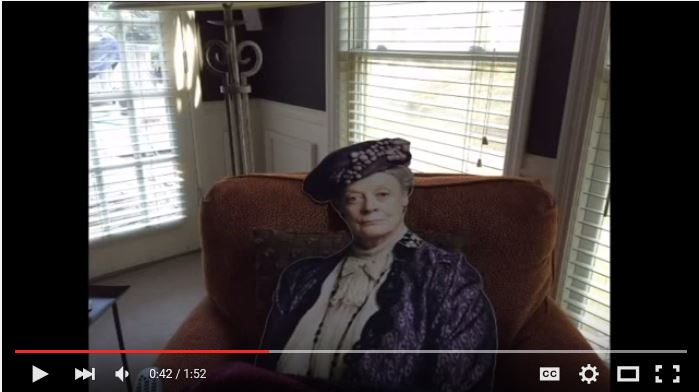
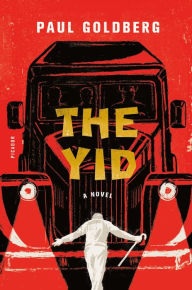 Paul Goldberg's debut novel, The Yid, is a wildly imaginative account of Josef Stalin's death that combines elements of drama, thriller and farce into an energetic alternate history of the dictator's demise.
Paul Goldberg's debut novel, The Yid, is a wildly imaginative account of Josef Stalin's death that combines elements of drama, thriller and farce into an energetic alternate history of the dictator's demise.